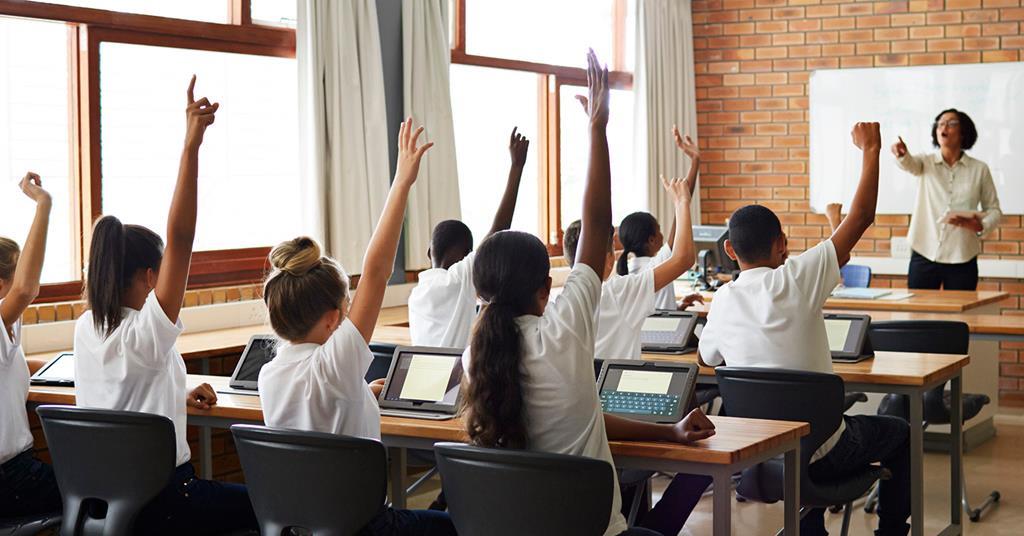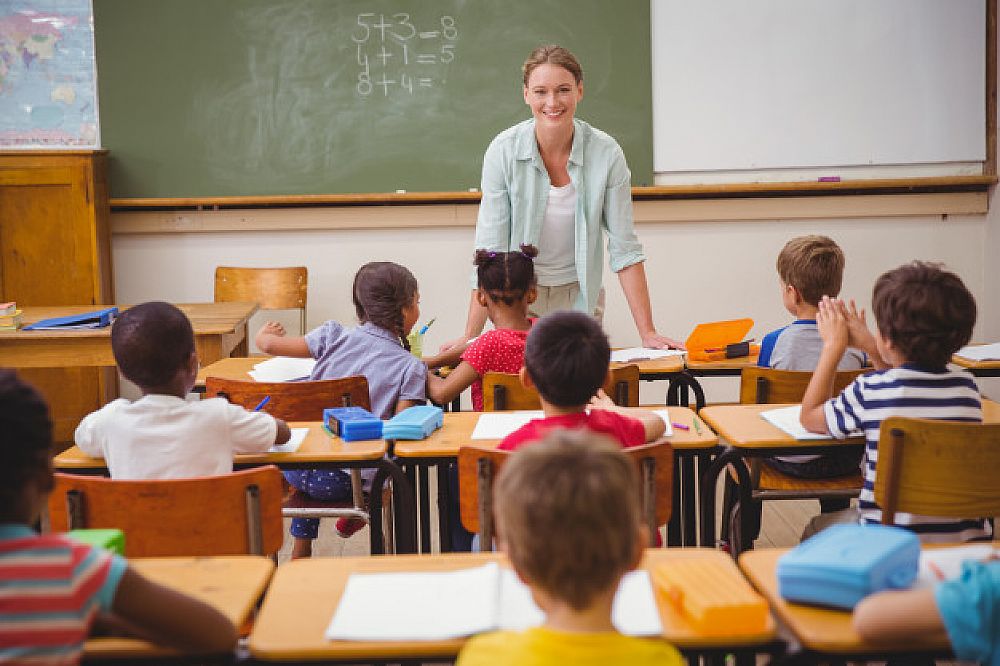Improve Your Child’s Performance with Primary Science Tuition Singapore
Improve Your Child’s Performance with Primary Science Tuition Singapore
Blog Article
A Comprehensive Overview to the Different Understanding Techniques in Primary Scientific Research Instruction
The expedition of varied discovering approaches in main scientific research instruction offers a chance for teachers to improve trainee engagement and understanding substantially. By examining hands-on understanding strategies, inquiry-based methods, and joint approaches, we can identify effective methods that provide to various discovering designs.

Hands-On Learning Techniques
Hands-on discovering methods play a crucial role in main science instruction, involving pupils in energetic expedition and experimentation. These methods enable learners to connect straight with sensations and materials, fostering a much deeper understanding of scientific concepts. By utilizing manipulatives, models, and real-life experiments, educators produce an environment where trainees can observe, assume, and evaluate their ideas.
Such techniques not just boost comprehension but additionally grow critical reasoning and problem-solving abilities. When pupils participate in tasks like building easy equipments, planting seeds, or carrying out chain reactions, they are encouraged to ask inquiries and look for responses through their own observations. This experiential method aids to demystify complicated clinical principles, making them extra available and relatable.
Additionally, hands-on learning advertises collaboration among peers, as students frequently work in teams to conduct experiments or share findings. This teamwork not only enhances their knowing experience but additionally develops necessary social abilities. Ultimately, incorporating hands-on strategies in primary science direction cultivates a long-lasting love of learning and interest about the environment, laying a strong foundation for future scholastic quests in scientific research and past.
Inquiry-Based Knowing
Inquiry-based knowing is an instructional technique that motivates trainees to ask concerns, investigate phenomena, and build their own understanding of scientific ideas. This method shifts the focus from conventional teacher-led instruction to a more student-centered experience, where learners take the initiative in their instructional trip. By fostering curiosity, inquiry-based understanding promotes deeper involvement with the material, allowing trainees to check out topics in a meaningful context.
In method, this method frequently includes hands-on experiments, observations, and vital reasoning tasks that align carefully with the scientific approach. Students are urged to create theories, style examinations, and examine information, which grows crucial skills such as analytical and problem-solving thinking. The role of the educator in this framework is to help with expedition, directing students through the inquiry procedure while urging independent idea and collaboration.
In addition, inquiry-based discovering nurtures a feeling of ownership over the understanding procedure, encouraging pupils to pursue understanding proactively. This method not just enhances understanding of clinical concepts but also cultivates a long-lasting love for understanding, gearing up trainees with the skills needed to browse a significantly intricate world.
Collaborative Learning Approaches
Joint knowing approaches equip students to involve in meaningful communications with peers, promoting a shared responsibility for their educational outcomes. In primary science guideline, these strategies motivate students to interact to discover scientific principles, fix troubles, and perform experiments (primary science tuition Singapore). By joining group tasks, students can utilize diverse viewpoints, enabling for richer understanding and retention of scientific expertise
One trick aspect of collective learning is the emphasis on interaction skills. Pupils have to articulate their ideas, listen actively to others, and bargain concepts, all of which are critical expertises in both academic and real-world Your Domain Name contexts. This social communication not only find out here boosts their understanding of scientific concepts however likewise promotes team effort and problem resolution skills.
When pupils see the value of their payments within a group, they are extra most likely to take ownership of their learning journey. Overall, incorporating joint discovering approaches in primary science instruction cultivates a vibrant understanding atmosphere that prepares trainees for future academic and social obstacles.
Innovation Integration in Scientific Research
The integration of innovation in primary science instruction improves learning experiences by offering cutting-edge tools and resources that sustain different teaching approaches, including collaborative knowing - primary science tuition Singapore. Making use of electronic systems, simulations, and interactive applications allows students to involve deeply with scientific ideas, facilitating an extra hands-on strategy to discovering
Digital laboratories, for example, make it possible for students to conduct experiments securely and efficiently, advertising inquiry-based knowing. These devices can simulate real-world scientific circumstances, enabling trainees to envision intricate procedures that would be hard to duplicate in a conventional class setting. Technology fosters interaction and cooperation among students, as they can share searchings for and function with each other on projects with online platforms.
Furthermore, multimedia discussions and educational video clips can improve lessons by catering to diverse understanding styles, making abstract concepts much more accessible. Information evaluation tools additionally empower students to accumulate and translate scientific information, strengthening important believing abilities. Overall, the tactical unification of modern technology in main scientific research direction not just enhances involvement yet additionally prepares pupils for a highly innovative culture, furnishing them with necessary abilities for future clinical undertakings.
Separated Instruction Methods
Separated direction strategies are necessary for addressing the varied demands of learners in main scientific research education and learning. These techniques make it possible for teachers to tailor their training techniques to accommodate varying capabilities, passions, and discovering designs within the classroom. By employing set apart instruction, educators can develop a comprehensive setting that promotes engagement and boosts understanding of scientific concepts.
One efficient strategy is to utilize adaptable grouping, which permits students to team up with peers at comparable skill degrees or with varying viewpoints. This approach urges peer knowing and promotes essential thinking. Additionally, supplying selections in jobs can encourage pupils, permitting them to choose tasks that resonate with their passions while still meeting curricular objectives.
Furthermore, including tiered jobs is one more important strategy. By developing tasks with differing degrees of intricacy, teachers can guarantee that all pupils are properly challenged, no matter their proficiency. Using developmental assessments to gauge recognizing further makes it visit this web-site possible for instructors to adjust their instructional approaches dynamically, ensuring that each student gets the assistance they require.
Inevitably, applying separated direction strategies in main scientific research education not just enhances pupil learning outcomes however also grows an enthusiasm for scientific research, preparing trainees for future academic searches.

Final Thought
In summary, reliable main scientific research instruction demands a complex approach that includes hands-on knowing, inquiry-based methods, and joint methods. The integration of modern technology and distinguished guideline further accommodates varied learning styles, promoting an atmosphere favorable to expedition and crucial reasoning. By executing these strategies, teachers can enhance pupil interaction and understanding, inevitably supporting a long-lasting passion for scientific research and inquiry. Such detailed methodologies are important for creating informed and curious future researchers.
The expedition of varied learning techniques in key scientific research guideline offers an opportunity for teachers to boost trainee interaction and understanding dramatically.Hands-on discovering strategies play a crucial function in key scientific research direction, involving pupils in energetic expedition and trial and error.Inquiry-based knowing is an instructional method that urges trainees to ask concerns, check out phenomena, and create their own understanding of clinical concepts.Joint understanding techniques encourage pupils to involve in purposeful interactions with peers, cultivating a common responsibility for their instructional results. Generally, integrating joint discovering strategies in key scientific research direction cultivates a dynamic knowing environment that prepares students for future academic and social difficulties.
Report this page